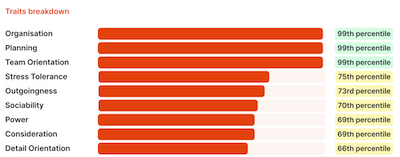Why should you use an R test?
When hiring for an R programmer or developer, certain qualifications might form part of the essential criteria screened for in the initial paper sift - usually something like a degree or postgraduate certification in programming or computer science.
However, qualifications and experience don't always tell the whole story, and with popular roles, you could end up with dozens of similarly qualified candidates who might be suitable for the role - and that is too many to take through to the interview stage.
Adding the R test to the recruitment funnel is another way to screen, and because it is simple to administer, the hiring team can send a link to a large number of candidates and just wait for the results to come in. The applicants who do not meet the benchmark score can be filtered out, and the remaining candidates will be the ones who have demonstrated that they have what it takes to be successful.
In the R test, candidates will need to show that they understand the different modeling techniques, classification, and clustering, and that they are capable of using the operators and tools to manipulate and graphically represent data.
Every candidate is asked similar questions in the assessment, which means that their score is unbiased and quantifiable data - perfect for choosing the most competent and qualified candidates to take forward to the interview stage.
This added step in the recruitment process reduces the cost per hire, and the time taken in screening, and increases the quality of candidates to interview - which are all important things to consider when you want to make hiring faster and more efficient.






